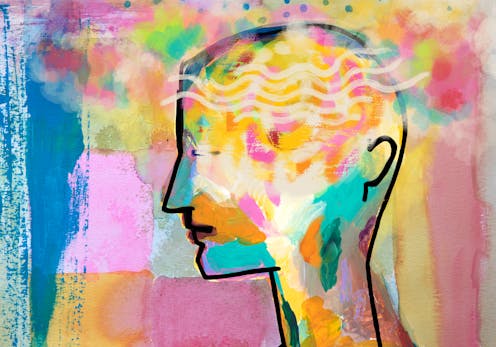Introduction
Mental health care is a crucial aspect of overall well-being, and in Australia, it is gaining increasing recognition and importance. With the prevalence of mental health issues on the rise, it is essential for individuals to have access to the necessary support and resources. This blog post aims to provide a comprehensive guide to mental health care in Australia, covering topics such as understanding the mental health system, accessing services, finding the right professional, navigating public and private systems, understanding Medicare’s role, managing costs, advocating for your rights, exploring alternative treatment options, building a support system, and overcoming barriers to treatment.
Understanding the Australian Mental Health System: An Overview
The mental health system in Australia is structured to provide a range of services to individuals experiencing mental health issues. It consists of various components, including primary care services, community-based services, and specialized mental health services. Primary care services, such as general practitioners (GPs), play a vital role in the early identification and management of mental health conditions. Community-based services, such as community mental health centers and non-government organizations, provide support and treatment options for individuals with mental health issues. Specialized mental health services, such as psychiatric hospitals and clinics, cater to individuals with severe and complex mental health conditions.
How to Access Mental Health Services in Australia
Accessing mental health services in Australia can be done through various channels. One way is through self-referral, where individuals can directly contact mental health professionals or services without a referral from a GP. Another way is through GP referral, where individuals consult their general practitioner, who can then refer them to appropriate mental health services. Additionally, individuals can access mental health services through emergency departments or helplines in urgent situations. It is important to note that the availability and accessibility of mental health services may vary depending on the location and specific needs of the individual.
Finding the Right Mental Health Professional for You
Finding the right mental health professional is crucial for effective treatment and support. In Australia, there are various types of mental health professionals, including psychologists, psychiatrists, counselors, and social workers. Psychologists are trained in assessing and treating mental health conditions using evidence-based therapies. Psychiatrists are medical doctors who specialize in the diagnosis and treatment of mental illnesses, often prescribing medication. Counselors and social workers provide counseling and support services to individuals with mental health issues. When choosing a mental health professional, it is important to consider their qualifications, experience, and approach to treatment, as well as their compatibility with your needs and preferences.
Navigating the Public vs. Private Mental Health System in Australia
In Australia, individuals have the option to access mental health services through the public or private system. The public mental health system is funded by the government and provides services at little to no cost. It is designed to cater to individuals with severe and complex mental health conditions. The private mental health system, on the other hand, is funded through private health insurance or out-of-pocket payments. It offers a wider range of services and shorter waiting times but can be more expensive. When deciding between the public and private system, it is important to consider factors such as the severity of your condition, your financial situation, and your personal preferences.
Understanding the Role of Medicare in Mental Health Care
Medicare plays a significant role in mental health care in Australia. It provides funding for a range of mental health services, including visits to GPs, psychologists, and psychiatrists. Under the Better Access to Mental Health Care initiative, individuals with a mental health care plan from their GP can receive Medicare rebates for up to 20 sessions with a psychologist or other eligible mental health professional. Medicare also covers the cost of psychiatric consultations and inpatient treatment in public hospitals. It is important to consult with your GP or mental health professional to understand the specific Medicare-funded services available to you.
Tips for Managing Mental Health Care Costs in Australia
While Medicare provides funding for mental health services, there may still be out-of-pocket costs involved. To manage these costs, it is important to consider options such as bulk-billing, where the healthcare provider accepts the Medicare rebate as full payment, eliminating the need for out-of-pocket expenses. Additionally, individuals can explore private health insurance options that cover mental health services. It is also worth considering community-based services and non-government organizations that offer low-cost or free mental health support. Finally, it is important to keep track of your mental health care expenses and consult with a financial advisor if needed.
Advocating for Your Mental Health Care Rights in Australia
As a mental health care patient in Australia, you have certain rights that protect your access to quality care. These rights include the right to be treated with respect and dignity, the right to be involved in decisions about your care, the right to privacy and confidentiality, and the right to complain or provide feedback about your care. It is important to be aware of these rights and to advocate for yourself if you feel they are not being upheld. This can be done by speaking up about your needs and concerns, seeking a second opinion if necessary, and contacting relevant authorities or organizations for support.
Exploring Alternative Mental Health Treatment Options in Australia
In addition to traditional mental health services, there are alternative treatment options available in Australia that can complement or be used as alternatives to conventional therapies. These options include complementary and alternative medicine (CAM) approaches such as acupuncture, yoga, meditation, and herbal remedies. While the evidence for the effectiveness of these treatments may vary, many individuals find them helpful in managing their mental health. It is important to consult with your mental health professional before exploring alternative treatment options to ensure they are safe and appropriate for your specific needs.
Building a Support System: Resources for Mental Health Care in Australia
Building a support system is crucial for individuals with mental health issues. In Australia, there are various resources available to support mental health care. These include helplines such as Lifeline and Beyond Blue, which provide 24/7 support and counseling. Online resources, such as websites and forums, offer information and peer support. Community-based organizations and support groups provide opportunities for individuals to connect with others facing similar challenges. Additionally, mental health apps and digital platforms offer tools and resources for self-help and monitoring. It is important to explore these resources and find the ones that best suit your needs and preferences.
Stigma and Mental Health Care in Australia: How to Overcome Barriers to Treatment
Stigma surrounding mental health care is a significant barrier to treatment in Australia. Many individuals hesitate to seek help due to fear of judgment or discrimination. To overcome these barriers, it is important to challenge and educate yourself and others about mental health. This can be done by sharing your own experiences, engaging in open conversations, and promoting mental health awareness in your community. It is also important to seek support from trusted individuals, such as friends, family, or support groups, who can provide understanding and encouragement. Finally, it is crucial to remember that seeking help for mental health issues is a sign of strength, and there is no shame in reaching out for support.
Conclusion
Mental health care is a vital aspect of overall well-being, and in Australia, there are various resources and support systems available to individuals in need. This blog post has provided a comprehensive guide to mental health care in Australia, covering topics such as understanding the mental health system, accessing services, finding the right professional, navigating public and private systems, understanding Medicare’s role, managing costs, advocating for your rights, exploring alternative treatment options, building a support system, and overcoming barriers to treatment. It is important to remember that seeking help for mental health issues is a courageous step, and there is support available to help you on your journey to recovery.
Find out how Torongo Therapyplus can help you with your needs. Get in touch with us at smile@torongo.life, or call us on 02 8809 9965.






























